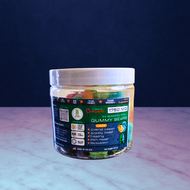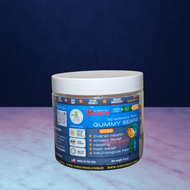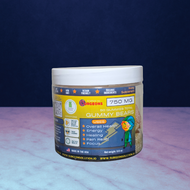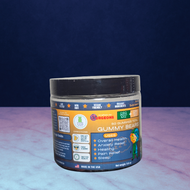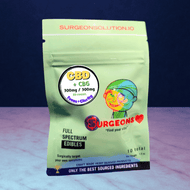Surgeons Online Cannabinoid Academy
Foods That Promote Digestive Health: What to Include
Foods That Promote Digestive Health: What to Include
Foods That Promote Digestive Health – What to Include
Curious about the best foods to improve your digestive system? Watch this video to discover the top foods, herbs, and cannabinoids that support healthy digestion and gut wellness.
Watch this video on YouTube: Foods That Promote Digestive Health – What to Include - Surgeons, LLC.
Read the full article here: Foods That Promote Digestive Health – What to Include.
Promote better digestive health by including the right foods and cannabinoids in your diet. Learn how to use CBD, CBG, and natural foods to enhance gut wellness and overall health. 🌿
Shop Premium CBD & CBG Products for Digestive Health
Are you tired of feeling sluggish after meals? Today, we examine foods that promote digestive health to help you enjoy a smoother digestion process. The post reviews high-fiber foods and probiotic options that support your gut function. You will learn how hydration and healthy fats add value to your daily diet. This guide offers practical steps to ease typical digestive issues and boost overall comfort.
Understand the Benefits of Foods for Digestive Health
This section outlines how fiber-rich foods boost digestion and maintain gut function, how probiotics such as culturelle probiotics enrich gut flora diversity, the role of hydration in wellness, and how fermented foods and antioxidants aid digestion. It also highlights healthy fats for nutrient absorption, pain management, the best food for digestion problems, culturelle women's healthy balance, and best digestive enzyme supplements.

Learn How Fiber-Rich Foods Improve Digestion and Gut Function
Fiber-rich foods boost digestion and support a balanced gut environment by aiding nutrient absorption and bowel regularity. Experts note that individuals with ulcerative colitis often experience fewer symptoms as these foods help regulate digestion, and medical protocols following a cholecystectomy sometimes recommend high-fiber diets under a strict health policy to manage the disease effectively.
Incorporating natural sources of fiber can lead to improved digestive function, which may indirectly affect overall bodily processes such as urine frequency. First-hand accounts from healthcare providers underline that a steady intake of fiber not only supports gut health but also complements the management strategies employed in treating digestive disease.
Discover How Probiotics Can Boost Gut Flora Diversity
Research indicates that probiotics improve gut flora diversity and may alleviate various digestive health issues. A respected physician noted that a steadier gut environment can also support the immune system, offering relief for those dealing with mild allergy symptoms and contributing to overall wellness.
Some healthcare professionals suggest incorporating probiotic supplements as part of a balanced nutrition plan. Their practical experience shows that a stable digestive system might reduce the need for additional interventions, such as a sitz bath, when managing discomfort associated with digestive stress.

Identify the Role of Hydration in Digestive Wellness
Proper hydration plays a key role in maintaining digestive wellness by aiding nutrient absorption and lubrication of the colon, which helps those with problems digesting food achieve a smoother digestive process. Medical professionals at an urgent care center advise pairing water intake with healthy gut supplements to assist in managing diverticular disease and preventing complications related to intestinal ischemia. This practical step supports overall gut function while offering a simple solution for better digestive outcomes.
Regular water consumption contributes to a more efficient digestive system, reducing the strain on the intestines and promoting balanced digestion. Expert recommendations suggest that individuals regularly experiencing problems digesting food benefit from maintaining hydration levels in tandem with healthy gut supplements, especially if they are at risk for conditions such as diverticular disease or intestinal ischemia. This straightforward approach provides an accessible means to enhance digestive health and support overall well-being.
Examine the Impact of Fermented Foods on Gut Health
Fermented foods support gut health by fostering a balanced environment within the abdomen, which may ease symptoms associated with gastroesophageal reflux disease and provide benefit for individuals undergoing a diagnosis for digestive issues. The presence of beneficial bacteria in these foods complements the action of zenwise digestive enzymes, promoting overall digestive balance and helping maintain the well-being of essential glands.
Integrating fermented foods into a daily routine offers practical support for those managing digestive concerns, potentially reducing discomfort linked to various conditions. Experts recognize that this natural approach might aid in relieving pressure within the abdomen, thereby serving as a useful tool alongside prescribed treatments for conditions like gastroesophageal reflux disease.
Recognize the Importance of Antioxidants in Digestion
Antioxidants play a significant role in supporting a well-functioning stomach and contribute to a standard of care for maintaining digestive health. Expert opinions state that incorporating antioxidant-rich foods can help manage occasional pain and reduce the formation of a scar in cases of chronic inflammation.
Practical insights reveal that antioxidants work efficiently to improve overall digestion and protect against choking hazards by maintaining the integrity of digestive tissues. Healthcare professionals recommend a balanced diet filled with these nutrients as a proactive approach to ensure a healthy stomach environment and prevent discomfort.

Find Out How Healthy Fats Promote Nutrient Absorption
Healthy fats play a key role in nutrient absorption by helping the body process essential vitamins, which contributes to improved overall health and digestive efficiency. Medical experts observe that incorporating moderate amounts of these fats can reduce heartburn and lower the risk of malnutrition in individuals facing dietary challenges.
Clinical experience shows that a balanced intake of valuable fats supports the digestive system, benefiting those affected by conditions such as viral hepatitis. Practitioners note that even simple dietary adjustments, such as avoiding excessive chewing gum, can promote better vitamin absorption and more stable digestive function.
Include High-Fiber Foods for Digestive Support
Experts review whole grains that aid digestion effectively, while incorporating fruits like berries and apples and vegetables high in fiber. They consider legumes for plant-based fiber and select nuts and seeds that support digestion. Practical insights from bariatrics guide strategies for constant stomach issues and eating routines; patient portal reviews sometimes suggest a mild laxative for digestive support.
Explore Various Whole Grains That Aid Digestion Effectively
Whole grains such as brown rice offer a natural way to support the digestive system, with routines validated by research in gastroenterology. Radiology experts often review the role of fiber-rich grains in aiding the duodenum’s functioning, which can help ease symptoms like flatulence.
The inclusion of various whole grains contributes to balanced nutrition and improved gut performance. Health specialists emphasize that integrating convenient options like rice into daily meals provides a practical solution to digestive challenges faced by many individuals.
Incorporate Fruits, Like Berries and Apples, Into Meals
Studies reported in a clinical trial demonstrate that including berries and apples in daily meals can support the small intestine's natural functions, reducing risks of complications such as vomiting. Medical professionals note that this practice also assists bile production, which helps regulate digestion and ease discomfort.
Research shows that regular intake of these fruits helps maintain digestive balance and prevent issues that may lead to complications. Practical examples from healthcare settings underline that routine consumption of berries and apples aids the small intestine and improves overall gut performance.
Choose Vegetables That Are High in Fiber Content
Vegetables high in fiber content benefit the digestive system by promoting regular bowel movements and alleviating discomfort that may follow consuming dairy or lactose-containing products. Clinical observations show that such vegetables contribute to maintaining a healthy weight and easing pressure on the esophagus, which can help reduce fatigue caused by digestive stress.
Nutrition experts advise integrating fiber-rich vegetables into daily meals to support overall digestive efficiency and minimize issues related to processed foods. This practical approach has proven effective in balancing dietary intake, particularly for individuals managing lactase deficiency and seeking alternatives to dairy, ultimately fostering greater digestive comfort and improved energy levels.

Discover Legumes as a Source of Plant-Based Fiber
Legumes offer an excellent plant-based fiber source that improves bloating and digestion by reducing excess mucus buildup along the gastrointestinal tract. Primary care professionals often recommend these foods as a natural support for maintaining healthy tissue and easing routine discomfort, drawing on practical experiences in nursing care settings.
Integrating legumes into a daily diet can assist in balancing digestive processes while addressing common concerns such as bloating and digestion. Experts in nursing and primary care note that this fiber-rich food supports smoother bowel movements, contributing to overall tissue health and an effective approach to managing digestive issues.
Identify Nuts and Seeds That Support Digestive Health
Nuts such as almonds and walnuts, along with seeds like flaxseeds, provide fiber that supports a balanced digestive system, which can help individuals who experience trouble digesting food after meals that include ingredients like onion or citrus. Health experts note that this natural fiber aids in maintaining acid balance and assists in reducing the impact of stress on digestion.
The inclusion of these foods offers a practical approach to reinforce gut stability, as many health professionals observe that regular consumption can ease digestive discomfort and counteract occasional spikes in acid levels. Clinical insights affirm that a diet enriched with these nuts and seeds contributes to a smoother digestive process, especially for those facing challenges with digestion due to stress and dietary triggers.
Create Delicious Recipes Using High-Fiber Ingredients
Recipes incorporating high-fiber ingredients can offer a practical solution for individuals aiming to improve their digestive health while reducing visits to the emergency department. Culinary experts often recommend these dishes as the gold standard in nutritional planning, blending dietary fiber with a touch of pawfy probiotic to support balanced gut function and consistent endocrinology advice.
Innovative meal ideas using fiber-rich components provide a simple yet effective way to manage digestive stress and promote wellness. Chefs and health practitioners emphasize that these recipes not only appeal to those seeking reliable nutrition but also reflect trusted methods in nutritional care based on endocrinology and clinical insights.
Select Probiotic Foods to Maintain Gut Balance
Yogurt options rich in live cultures, kefir with diverse strains, kimchi, sauerkraut, miso, and tempeh provide nutrient-dense choices that support fluid digestive health. Hepatology experts suggest these probiotic foods align probiotic balance and improve overall gut function, including proper anus wellness. Incorporate these items daily for practical, effective digestive care.
Include Yogurt Options That Are Rich in Live Cultures
Yogurt options that contain live cultures offer tangible relief for individuals facing type 2 diabetes digestive problems and related issues. Clinical findings in internal medicine suggest that consuming such products, especially after an antibiotic regimen, can help stabilize gut health and reduce bloating.
Health experts advise integrating these yogurt choices into daily meals to promote balanced digestion while moderating caffeine intake. Practical experiences indicate that such dietary adjustments support effective management of digestive discomfort, ensuring a smoother and more reliable nutritional routine.

Try Kefir for a Diverse Probiotic Source
Kefir offers a natural solution for those seeking diverse probiotic sources, especially beneficial for improving gastrointestinal motility and easing the symptoms of gastrointestinal disease. Clinical experts have observed that low-sugar kefir, free from gluten, serves as an effective option and is often referred to as the best probiotic for constipation in targeted nutritional guidance.
Nutrition specialists highlight that kefir's array of live cultures can address digestive challenges by promoting a balanced gut, influencing motility, and providing relief for individuals with gastrointestinal disease. They note that integrating this fermented beverage, which contains minimal sugar and avoids gluten, supports digestive function and aids those looking for the best probiotic for constipation.
Add Kimchi as a Flavorful Probiotic-Rich Option
Kimchi offers a robust option for those seeking to support a balanced gut while promoting a healthy metabolism. Research indicates that regular inclusion of this fermented food can assist health care providers in monitoring changes in muscle tone related to digestion, with some patients reporting improved signs on a blood test after integrating kimchi into their diet.
This probiotic-rich option has shown promise for individuals dealing with minor issues such as esophageal stricture, according to practical observations from health care experts. Clinical insights suggest that adding kimchi can help stabilize digestion and enhance nutrient absorption, contributing to overall digestive strength and better metabolic balance.
Experiment With Sauerkraut and Its Gut Health Benefits
Sauerkraut offers a natural probiotic source that supports healthy digestion while aiding in managing constipation. Clinical observations note that its regular consumption can promote weight loss and improve liver function, which may help individuals living with hepatitis c maintain better overall health.
Practical insights from healthcare experts reveal that incorporating sauerkraut can steady digestive processes, offering relief and stability to the gut. This approach provides a simple dietary option for those seeking improved nutrient absorption and a smoother digestive routine through regular intake of probiotic-enriched foods.

Discover Miso and Tempeh as Versatile Probiotic Foods
Miso and tempeh offer practical probiotic support that helps maintain balanced gut flora, which may improve quality of life. Experts in digestive care note that including these foods in a daily meal can benefit individuals recovering from surgery or undergoing therapy by promoting steady digestive function and overall wellness.
Healthcare professionals observe that miso and tempeh provide a reliable source of live cultures that support recovery after childbirth and other medical procedures. Their practical experience shows that consistently adding these probiotic-rich foods to every meal can aid in digestive recovery and positively influence quality of life.
Learn How to Incorporate Probiotics Into Your Daily Diet
She emphasizes integrating probiotic-rich foods into daily meals as a simple tactic to improve digestion and support the gastrointestinal tract. Clinical observations confirm that carefully chosen probiotics have a minimal side effect when consistently consumed, and they even act as a natural stimulant for the appetite, ensuring that nutritional needs are met.
Experts advise that incorporating fermented beverages and live culture dairy items can boost overall gut health while maintaining steady digestion and appetite. Practical experience suggests that maintaining a diet rich in probiotics not only supports the gastrointestinal tract but also helps reduce potential side effects common with other digestive relief methods.
Embrace Hydration for Optimal Digestion
This section outlines beverages that boost digestive efficiency, from herbal teas soothing stomach conditions to warm water easing indigestion. It covers water-rich foods that support hydration and strategies monitored in a medical record, with tips from a dietitian for individuals facing liver failure and other challenges.
Identify Beverages That Promote Digestive Efficiency
Research shows that beverages like herbal teas and infused water can improve cell hydration and support gut health issues effectively. Experts in behavioral medicine often recommend these drinks as part of a balanced routine, especially for individuals managing small intestinal bacterial overgrowth, offering a practical complement to the best food for digestion issues.
Studies indicate that daily intake of these beverages aids in maintaining fluid balance and optimizing nutrient absorption. Healthcare professionals note that incorporating such drinks can help stabilize digestive behavior and reduce discomfort associated with common gut health issues, providing tangible benefits for those experiencing challenges in this area.
Consider Herbal Teas That Soothe the Digestive Tract
Herbal teas offer practical relief for individuals seeking soothing solutions for digestive discomfort, with their natural enzymes supporting better gut function similar to the benefits observed in wheat and bran-based diets. Clinical observations show that integrating these teas can complement a routine that may also include oatmeal, aiding those whose genetics might predispose them to digestive sensitivities.
Medical experts point out that the use of herbal teas can be an actionable method for calming the digestive tract while enhancing overall enzyme activity during meals. This approach stands as a useful addition to diets rich in wheat, oatmeal, and bran, especially for individuals looking to modify their routines based on genetic insights and practical therapeutic guidance.

Explore the Effects of Warm Water on Digestion
Recent research shows that drinking warm water can help improve digestion by assisting the breakdown of fat and reducing inflammation, making meals that include barley easier to process. Clinical experts note that warm water may also alleviate symptoms for those with lactose intolerance, providing a practical and straightforward aid for digestive wellness.
Studies indicate that warm water supports efficient nutrient absorption while soothing the digestive tract after meals, especially when paired with barley-based dishes. Health professionals observe that this simple habit can lessen discomfort and promote overall gut health, offering a practical solution for managing issues such as inflammation and excess fat accumulation.
Add Water-Rich Foods to Increase Overall Hydration
Incorporating water-rich foods, such as cucumbers and melons, helps maintain hydration, which supports smooth digestion and minimizes headache occurrences. Health professionals recommend these foods to patients on medication or those recovering from surgery, as increased hydration can soothe the throat and lower the risk of diverticulosis symptoms.
Medical experts report that adding water-dense fruits and vegetables to meals assists the body's fluid balance, easing digestive processes and reducing discomfort. A surgeon has observed that this practice benefits individuals with various digestive challenges, ensuring that hydration remains a key factor in overall well-being.
Monitor Daily Water Intake for Better Digestive Health
Maintaining a consistent daily water intake plays a key role in overall nutrition, as it supports the function of the digestive system and works well with a probiotic multi enzyme supplement to keep digestion balanced. Observations from medical specialty practitioners reveal that monitoring water consumption can help reduce the need for frequent antacid use while improving general health outcomes.
Experts advise that a regulated water regimen, paired with nutritional strategies enriched by clinical experience, offers tangible benefits for gut health. They emphasize that those seeking a second opinion on digestive concerns find that hydration, combined with proper enzyme support, provides a practical approach to reducing digestive discomfort.
Plan Hydration Strategies for Busy Lifestyles
Busy individuals can plan hydration strategies by incorporating simple routines that pair water intake with their daily diet, including cereal-based breakfast options. Clinical research supports the idea that frequent hydration helps maintain digestive balance and supports the body's ability to manage complications such as ischemia, a finding often validated by pathology studies.
Health experts recommend setting reminders to drink water throughout the day, emphasizing that structured hydration can improve overall wellness in demanding lifestyles. Research indicates that proper water intake works in tandem with nutrient-rich meals, ensuring that the body has sufficient support to combat issues observed in clinical research and pathology, especially following meals involving cereal and other dietary components.

Explore Fermented Foods for Gut Health
Homemade pickles serve as a gut-healthy snack, while kombucha offers clear digestive benefits. Traditional fermented dishes from various cultures, homemade fermented foods, fermented dairy products, and fermented grains all support the large intestine, lessen dehydration, and potentially help manage type 2 diabetes. Nurse practitioner insights reveal these foods benefit the organ and promote overall digestive wellness.
Include Homemade Pickles as a Gut-Healthy Snack
Homemade pickles, chosen as a gut-healthy snack, provide live cultures that support gut microbiota and assist in balancing gastric acid production, which may reduce issues like bleeding. Health experts note that including these fermented foods in a daily routine can also help control bad breath and gut health, offering practical benefits for individuals concerned about symptoms linked with kidney disease.
Practitioners advise incorporating homemade pickles into meals to improve digestive stability and support overall gut microbiota, which can be instrumental in managing gastric acid levels and reducing bleeding episodes. Clinical insights suggest that this nutrient-dense snack may also alleviate concerns such as bad breath and gut health, making it a valuable addition for those at risk of kidney disease.
Discover the Benefits of Kombucha for Digestion
Kombucha provides a unique combination of prebiotics and probiotics that support the growth of beneficial bacteria in the gut, offering a natural way to complement a balanced diet. Research and clinical observations suggest that the fermenting process in kombucha may help the body produce a natural digestive enzyme, potentially reducing common digestive issues without relying on a drug for relief.
Regular consumption of kombucha may ease digestive discomfort and even help minimize the occasional itch caused by food reactions, according to firsthand insights from nutrition experts. The beverage serves as an accessible option for those seeking a practical method to bolster gut health through its naturally occurring prebiotics and probiotics, while supporting overall intestinal balance.
Try Traditional Fermented Dishes From Various Cultures
Traditional fermented dishes from various cultures offer a practical addition to a balanced diet, providing natural benefits that may ease issues such as nausea and cough while supporting gut health. Health professionals note that these meals, often served with whole grain sides, can be beneficial for people managing chronic kidney disease and other digestive discomforts.
Clinical observations indicate that incorporating these time-tested fermented dishes can help alleviate symptoms related to fever and other mild ailments by enhancing the body's natural balance. Experts advise including these foods as part of a routine to improve digestion through the live cultures they offer, paving the way for more stable overall health outcomes.
Learn How to Make Your Own Fermented Foods at Home
Home fermentation offers individuals a practical method to create nutritious foods that support digestion and overall wellness. A nutritionist explains that maintaining fermented foods at home can assist with weight management and complement general surgery recovery by delivering natural probiotics directly from the mouth to the gut. Regular screening of fermentation batches ensures safety and quality, making this technique accessible for many seeking functional nutrition options.
Practical techniques allow enthusiasts to mix ingredients and control the fermentation process for optimum digestive benefits. Experts note that homemade fermented foods provide a natural solution for those needing dietary support post-general surgery, while careful handling minimizes risks related to contamination from the mouth, boosting confidence in this weight management strategy.

Identify Fermented Dairy Products and Their Digestive Advantages
Fermented dairy products offer a natural probiotic source that actively supports smooth digestive functioning. Health professionals observe that these products help maintain regularity, even for individuals managing conditions like gastroparesis, while reducing the risk of discomfort following an injury.
Specialists note that incorporating fermented dairy items into daily meals contributes to a stable digestive environment. Clinical insights suggest their probiotic benefits may ease symptoms for those with digestive challenges, providing a straightforward method to support gut health and offset complications related to injury or delayed stomach emptying.
Recognize Fermented Grains as Beneficial Additions
Fermented grains offer practical support for digestive health by contributing beneficial enzymes and live cultures that improve nutrient breakdown. Clinical experiences show that incorporating fermented grains such as sourdough bread or fermented barley can make a steady difference in maintaining a balanced gut environment and reducing digestive discomfort.
Nutrition experts report that these grains help regulate bowel function and support overall intestinal well-being. They advise that a diet including fermented grains provides a sound method to address digestion issues and promote a dependable digestive system through proven, natural benefits.
Choose Healthy Fats to Aid Digestion
This section highlights nutrient-dense avocados, olive oil for flavor and gut support, fatty fish for robust digestive health, chia seeds as a lean fat source, and coconut oil's gentle role in digestion. Practical insights emphasize meal planning with these ingredients, linking balanced nutrition with improved digestive function for optimal wellness.
Incorporate Avocados as a Nutrient-Dense Option
Avocados contain monounsaturated fats that support the breakdown of nutrients and improve overall digestion. Studies and expert reviews confirm that incorporating these fruits into a balanced diet contributes to a well-functioning digestive system and reduces common discomfort.
Medical professionals advise including avocados in meals to promote bowel regularity and nutrient absorption. Their dietary plans often feature avocados as a natural source of healthy fats, addressing the needs of individuals seeking practical solutions for improved digestive health.

Have you considered hemp derived CBD for your digestive health?
Use Olive Oil to Enhance Digestion and Flavor
Olive oil supports proper digestion by providing healthy fats that aid in nutrient absorption and reduce digestive discomfort. Experts note that its natural properties not only improve digestion but also add a pleasant flavor to meals, making it a versatile addition to a balanced diet.
Clinicians recommend incorporating olive oil into cooking routines as it encourages smoother digestive processes and complements other nutrient-dense ingredients. This choice is based on practical insights from dietary professionals who observe that meals prepared with olive oil consistently contribute to overall gut stability and enhanced food enjoyment.
Include Fatty Fish That Support Gut Health
Fatty fish provide important healthy fats that support gut health by aiding in the absorption of essential nutrients. Clinical studies support that omega-3 fatty acids found in fish may help reduce digestive inflammation and promote regular bowel function.
Medical experts emphasize the value of including fatty fish in a balanced diet to improve digestive health. Their practical experience shows that consistent consumption of fish helps optimize gut performance and may alleviate common discomfort associated with poor digestion.
Examine Chia Seeds as a Source of Healthy Fats
Chia seeds provide a beneficial source of healthy fats that support effective nutrient absorption and calm digestive inflammation. Clinical observations note that incorporating chia seeds into a daily diet can help ease stomach discomfort while promoting smoother digestion.
Research shows that chia seeds offer a balanced supply of essential fats, which can improve overall gut performance and nutrient breakdown. Health practitioners report that adding chia seeds to meals serves as a reliable method to support digestive function and aid in managing common dietary challenges.
Discover the Role of Coconut Oil in Digestive Processes
Coconut oil offers a practical solution for enhancing digestive processes through its easily digestible medium-chain fatty acids. These fatty acids support nutrient absorption and may reduce inflammation in the gastrointestinal tract for individuals looking for natural digestive aids.
Medical experts observe that incorporating coconut oil into meals can help maintain a steady digestive rhythm while easing discomfort. Its lightweight composition makes it a favored ingredient in diets that promote overall gut function and balanced nutrient processing.
Plan Balanced Meals With Healthy Fats for Digestibility
Balanced meals that include healthy fats support nutrient absorption and improve digestibility by ensuring steady digestive processes. Nutritional experts advocate arranging meals with moderate amounts of olive oil, avocado, or fatty fish, offering practical guidance to minimize discomfort while promoting a well-maintained gut.
Dietitians note that incorporating healthy fats into balanced meals can ease common digestive issues and support overall gut function. Clinical insights suggest that planning meals with a reliable source of healthy fats may help reduce symptoms of digestive stress and improve nutrient breakdown.
Conclusion
Including fiber-rich foods, probiotics, and fermented items in your diet proves vital for maintaining a balanced gut environment and efficient nutrient absorption. Prioritizing hydration and healthy fats further supports regular digestive processes while reducing discomfort. Consistently integrating nutrient-dense fruits, vegetables, whole grains, and legumes offers a practical approach to bolster overall digestive function. Adopting these dietary strategies empowers individuals to manage digestive challenges and optimize health every day.
Outline
I. Introduction
- Brief overview of how CBD can aid pain management.
- Highlight practical advice and recent research findings.
- Mention the importance of proper dosage and reliable sources.
II. Understanding CBD’s Role in Pain Management
- Explanation of what CBD is and its mechanism for pain relief.
- Overview of the endocannabinoid system's role in pain modulation.
- Comparison between CBD and traditional pain medications.
III. What Is CBD and How Does It Work for Pain Relief?
- Interaction with the body's endocannabinoid system.
- Key research findings supporting pain relief.
- Discussion of chronic pain conditions potentially eased by CBD.
IV. Differences Between CBD and Traditional Pain Medications
- Research comparing CBD with classic pain treatments.
- Highlight benefits of CBD over traditional pain medications (e.g., fewer side effects, no dependency).
- Real-world examples of CBD's efficacy.
V. The Endocannabinoid System and Pain Modulation
- Explanation of how the endocannabinoid system regulates pain.
- CBD’s role in receptor modulation and inflammation reduction.
- Comparison of CBD’s effects with placebos and other medications.
VI. Effective Strategies for Using CBD in Pain Management
- Determining the Right Dosage for Pain Relief.
- Different Forms of CBD Products for Pain Management (Oils, Topicals, Tinctures).
- Combining CBD with Other Pain Management Techniques (Physical Therapy, Meditation, etc.).
VII. Importance of Quality and Source in Choosing CBD Products
- The significance of high-quality CBD sources.
- How to identify reliable products and avoid inferior options.
- Explanation of lab-tested, pure, and federally legal CBD oils.
VIII. Research Studies on CBD for Pain Management
- Overview of clinical trials involving CBD for chronic pain.
- Key findings and potential limitations of current research.
- Comparisons with opioid medications and potential benefits.
IX. Personalizing Your Pain Management Plan With CBD
- Factors to consider when integrating CBD into your pain management strategy.
- Collaborating with healthcare professionals for tailored guidance.
- Monitoring and adjusting your CBD treatment plan.
X. Legal Considerations and Safety of CBD for Pain Management
- Current legal status of CBD and what it means for consumers.
- Potential side effects and interactions with other medications.
- Guidance for finding reliable sources of information.
XI. Real-Life Experiences With CBD for Pain Management
- Testimonials from individuals using CBD for pain relief.
- Case studies highlighting CBD’s impact on pain levels.
- Tips for finding and sharing success stories.
XII. Conclusion
- Summarizing the benefits of CBD for pain management.
- Encouragement for consulting healthcare providers before starting CBD.
- The potential future of CBD as a mainstream pain-relieving option.


